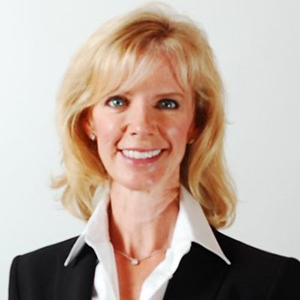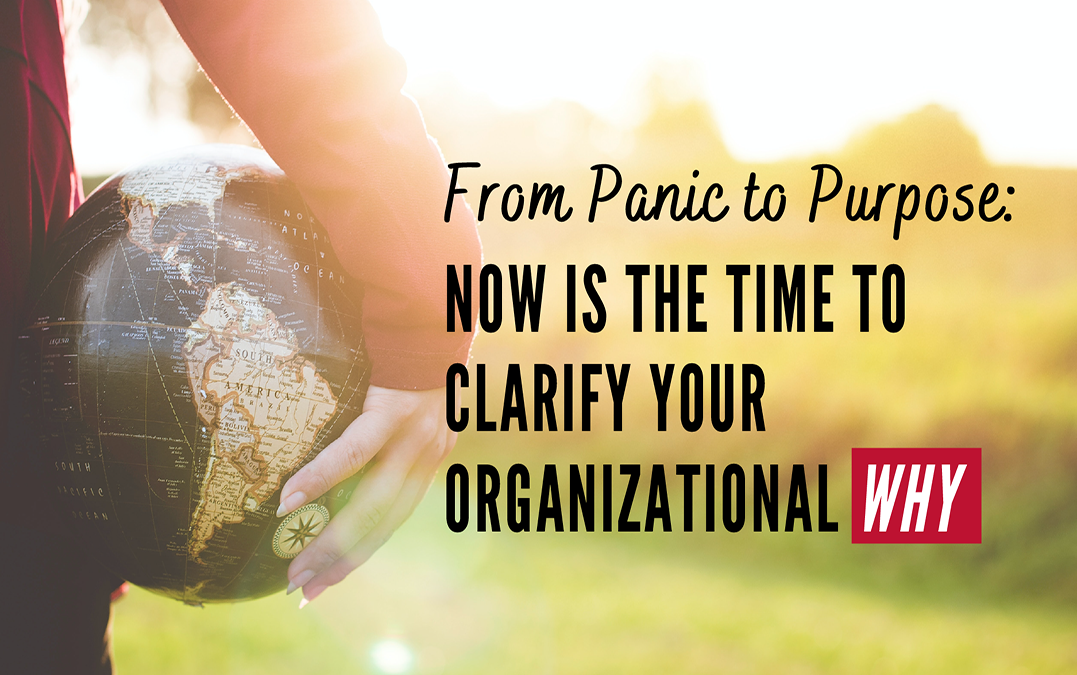
Letter from the Founder
Welcome to the seventieth issue of CEE News!

Last Thursday, I met a girlfriend for a glass of wine at a beautiful restaurant in San Diego during Happy Hour. After spending more than twelve months in a state of suspended animation—limiting my social interactions to fewer than a dozen people—I felt free.
Since March of 2020, my husband and I have limited our gatherings to a small cohort of family and friends. We ran our companies from our home offices and dedicated ourselves to making sure that our teams and clients were as safe, sound, and sane as possible through a year+ of uncertainty.
(more…)

Sticky Solutions
Sticky solutions to your everyday business challenges
 Question: I recently started a new position as Director of Diversity & Inclusion (D&I) at a municipal utilities company with over 3,000 employees. Before I was hired, the company offered bias training for managers and supported employee resource groups. Survey feedback showed that these efforts were “somewhat helpful”, but the company is still far from closing its gaps in D&I, so it has made addressing D&I a priority for the upcoming fiscal year. Can you recommend ways to adopt a more systemic approach to delivering on our D&I goals?
Question: I recently started a new position as Director of Diversity & Inclusion (D&I) at a municipal utilities company with over 3,000 employees. Before I was hired, the company offered bias training for managers and supported employee resource groups. Survey feedback showed that these efforts were “somewhat helpful”, but the company is still far from closing its gaps in D&I, so it has made addressing D&I a priority for the upcoming fiscal year. Can you recommend ways to adopt a more systemic approach to delivering on our D&I goals?
(more…)

Business In Focus
A closer look at companies executing leadership excellence
.
 In 2012, Silicon Valley software engineer JT Marino stumbled across a problem—buying a mattress totally sucked.
In 2012, Silicon Valley software engineer JT Marino stumbled across a problem—buying a mattress totally sucked.
Between confusing buzzwords, pushy salespeople, and backwards policies, JT knew there was an opportunity to take an archaic industry and flip it upside down. Enter Daehee Park, his long time friend and colleague. They launched a simple test site to see if anyone out there would actually be interested in buying a mattress online. Within just 15 minutes, Bingo! They had their first buyer.
After returning the money, they set out to learn everything they could about the industry. Tuft & Needle soon grew from two Silicon Valley software engineers to a team of over 150 people headquartered in Phoenix, AZ. They work each day to deliver a universally comfortable mattress, cut out the middlemen, and change the way mattresses are sold and delivered.
(more…)

Leadership
Commencement ceremonies from high schools and colleges have looked markedly different for the past year and a half. Parents aren’t seen straining to pick out their daughter or son from a sea of identical cap-and-gown-clad graduates. The solemn program on stage hasn’t been interrupted by the sudden appearance of a bouncing beach ball. Silly String wars are less likely to break out, fewer air horn blasts pierce the crowd, and those fortunate enough to graduate in a live ceremony don masks in addition to their caps and gowns.
But the commencement speeches from both celebrities, dignitaries, and graduating seniors themselves were a poignant reflection of the realities of the world we are living in today. Here is a selection of speeches that offer a call from those who’ve been fighting for justice and equity and a response from fresh graduates in sober recognition of the work left to be done.
 1. John Legend, Duke University, Watch it here
1. John Legend, Duke University, Watch it here
“Over the past year, you were forced to pause. Not just in competition with one another, but in community with each other. Anyone getting sick was a risk to everyone. We all had to slow down. Stop filling our days with maximum productivity and simply keep each other, safe, alive, simply care for one another. And this perspective you gained will serve us all, because while that competitive drive that got you here can be an incredible gift, it can get in the way too. Competitiveness can be a slippery slope. To think, ‘For me to get ahead in life, for me to succeed, someone else is going to have to lose out. Someone else will have to suffer.’ If you let that competitiveness take over, you might start to see life as a zero sum game. [Remember], our nation is at its best when we realize that we all do better, when we all do better.”
 2. Bryan Stevenson, Civil Rights Attorney, Author, and Executive Founder of Equal Justice Initiative, University of Michigan, Watch it here
2. Bryan Stevenson, Civil Rights Attorney, Author, and Executive Founder of Equal Justice Initiative, University of Michigan, Watch it here
“It’s easy to be discouraged in this moment when we don’t even get to come together for something as significant and momentous as your commencement. But I have great hope, and that hope resides in you. I know that so many of you are deeply committed to finding a path forward and do something about the problems that have created so much division and despair. We’ve never needed more people committed to change in the world than we do today. It breaks my heart to have to tell you that you can be talented, you can be gifted, you can be on the Dean’s list, a scholar of the first order, but if you are black or brown you’re going to go to places where you’ll have to navigate a presumption of dangerousness and guilt. And that’s not right. It’s not fair. It needs to change. And because of that, we have to commit to an era of truth telling in this country. I tell you this because I believe there is something better waiting for us than racism, than exclusion, than bigotry. But to get there, we are all going to have to change the narrative.”
 3. Valedictorian Emma Cockrum with her dog Hercules, East Ascension High School, Prairieville, LA, Class of 2020
3. Valedictorian Emma Cockrum with her dog Hercules, East Ascension High School, Prairieville, LA, Class of 2020
Cockrum was inspired by Sol Rexius, a pastor at The Salt Company Church of Ames in Iowa. She says Rexius uses the analogy of a dump truck full of dirt being emptied all over their senior year. Here’s how she put it in her commencement address:
“This may sound harsh, but it’s not untrue to how some of us feel. It is easy to feel buried by our circumstances. However, he [the pastor] goes on to paint a picture of a farmer planting a seed. Did the farmer bury the seed? Well, yes, but he also planted it. Instead of feeling buried by our situation, we must realize that the pain and heartache that has been piled upon us is not meant to bury, but to plant us in a way that will allow us to grow and prosper into who we are meant to be. As you stop and take in the circumstances around you, will you allow yourself to be buried or to be planted?”
 4. Valedictorian Kimani Ross with her family, Lake City High School, Lake City, SC, Class of 2020
4. Valedictorian Kimani Ross with her family, Lake City High School, Lake City, SC, Class of 2020
“I’ve had people tell me that I don’t deserve to be where I am now, and that really made me contemplate, ‘Do I really deserve this? Should I just give up and let them win?’ But look at where I am now. I’m glad that I didn’t stop. I’m glad that I didn’t let them get to me.
I’m especially glad that I earned this position so that all of the other little girls around Lake City and surrounding areas can look and say that they want to be just like me. I want those little girls to know that they can do it even if no one else believes in them, I will always believe in them. Classmates, when we’re out in the real world, don’t get discouraged about the obstacles that will approach you. As Michelle Obama once said, you should never view your challenges as a disadvantage. Instead, it is important for you to understand that your experience facing and overcoming adversity is actually one of your biggest advantages.
To all those who finished their studies and graduated during a global pandemic, I congratulate you for achieving this milestone forged under immense pressure. Your willpower has been proven irrevocable. Never forget that as long as you are unrelenting, you’re an unstoppable force.
Question: What advice would you give to those who graduated during the pandemic?
Driven by the premise that excellence is the result of aligning people, purpose and performance, Center for Executive Excellence facilitates training in leading self, leading teams and leading organizations. To learn more, subscribe to receive CEE News!

Purpose
If the turmoil of 2020 has prompted your leadership team to reconsider people priorities such as employee well-being, resilience, or purpose, then you’re in good company. Your employees are reconsidering you, too.
An August 2020 study by McKinsey found that nearly 70% of U.S.-based employees said that the Covid-19 pandemic has caused them to reflect on their purpose in life. Almost half said that they are reconsidering the kind of work they do because of the pandemic. Millennials – the largest generation in the U.S. labor force – were three times more likely than others to say that they were reevaluating work.
Such findings have implications for your organization’s talent-management strategy and its bottom line. People who live their purpose at work are more productive than people who don’t. They are also healthier, more resilient, and more likely to stay. Moreover, when employees feel that their purpose is aligned with the organization’s purpose, the benefits expand to include stronger employee engagement, heightened loyalty, and a greater willingness to recommend the organization to others.
Nonetheless, if you’re like most senior executives, you haven’t given the individual purpose of your employees much thought. Yet research shows that 70% of employees said that their sense of purpose is defined by their work. So, like it or not, as a leader, you play an important part in helping your employees find their purpose and live it.
But, where do you begin? Hint: With the one and only thing you control directly – the organization’s purpose. Clarify it. Codify it. Commit your senior leaders to modeling it. Treat it like your North Star for how to make difficult decisions and trade-offs. If you don’t put the work into getting your purpose off the walls and into the halls, the results can be devastating.
One action you can take today is to start spending time with your team reflecting on the impact the organization has on the world. Think dialogue, not monologue. Cringeworthy emails to your team about corporate social responsibility efforts that seem disconnected from the team’s day-to-day experience will only inspire cynicism. Still, when authentic and handled well, reflections on the bigger picture can inspire a sense of purpose.
So, whether you’re focused on meeting mid-term goals like a resurgent second half 2021 or long-term resilience initiatives, remember that your employees are five times more likely to be excited to work when they connect their work to the impact your organization makes in the world.
Question: Why is the world a better place because your organization exists?







 3. Valedictorian Emma Cockrum with her dog Hercules, East Ascension High School, Prairieville, LA, Class of 2020
3. Valedictorian Emma Cockrum with her dog Hercules, East Ascension High School, Prairieville, LA, Class of 2020 4. Valedictorian Kimani Ross with her family, Lake City High School, Lake City, SC, Class of 2020
4. Valedictorian Kimani Ross with her family, Lake City High School, Lake City, SC, Class of 2020